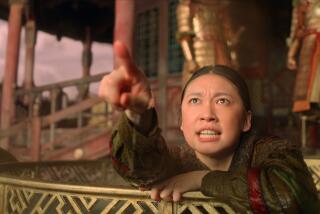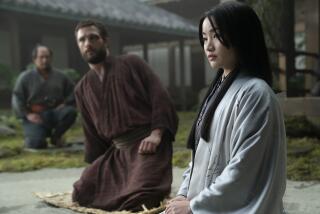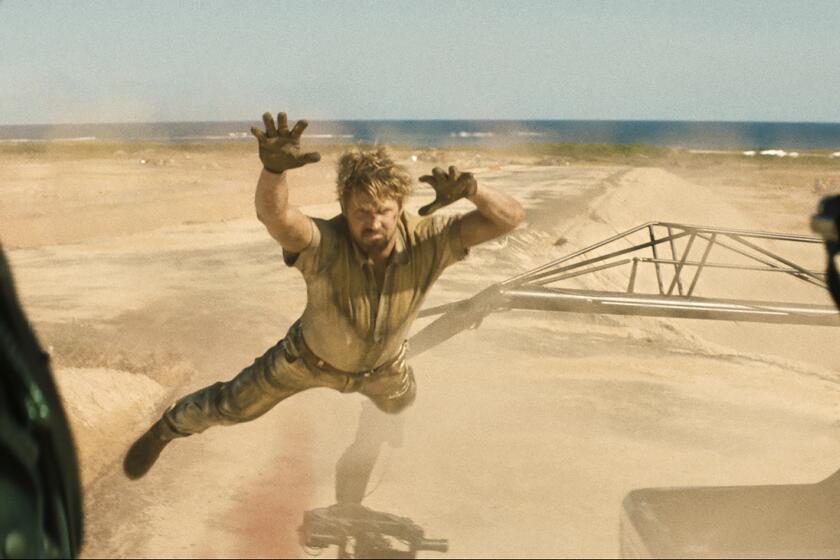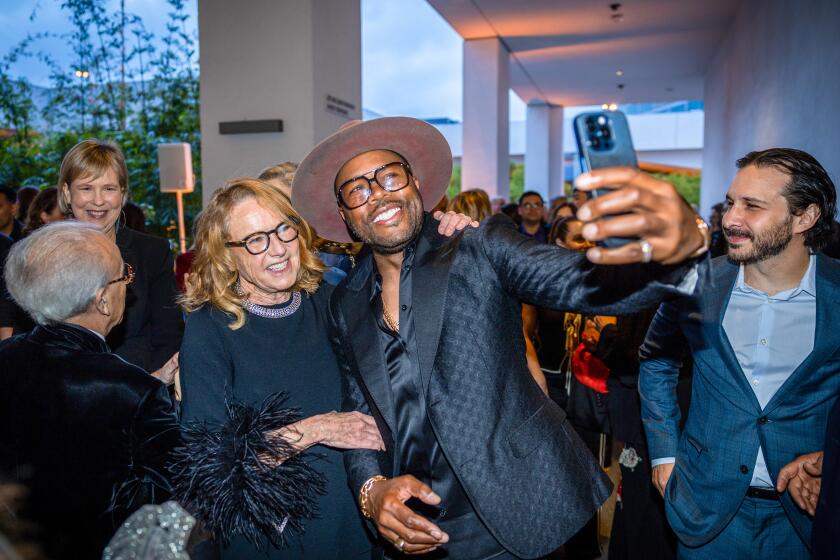Readers react to coverage of George Clooney’s ‘Catch-22’ and more ‘Game of Thrones’
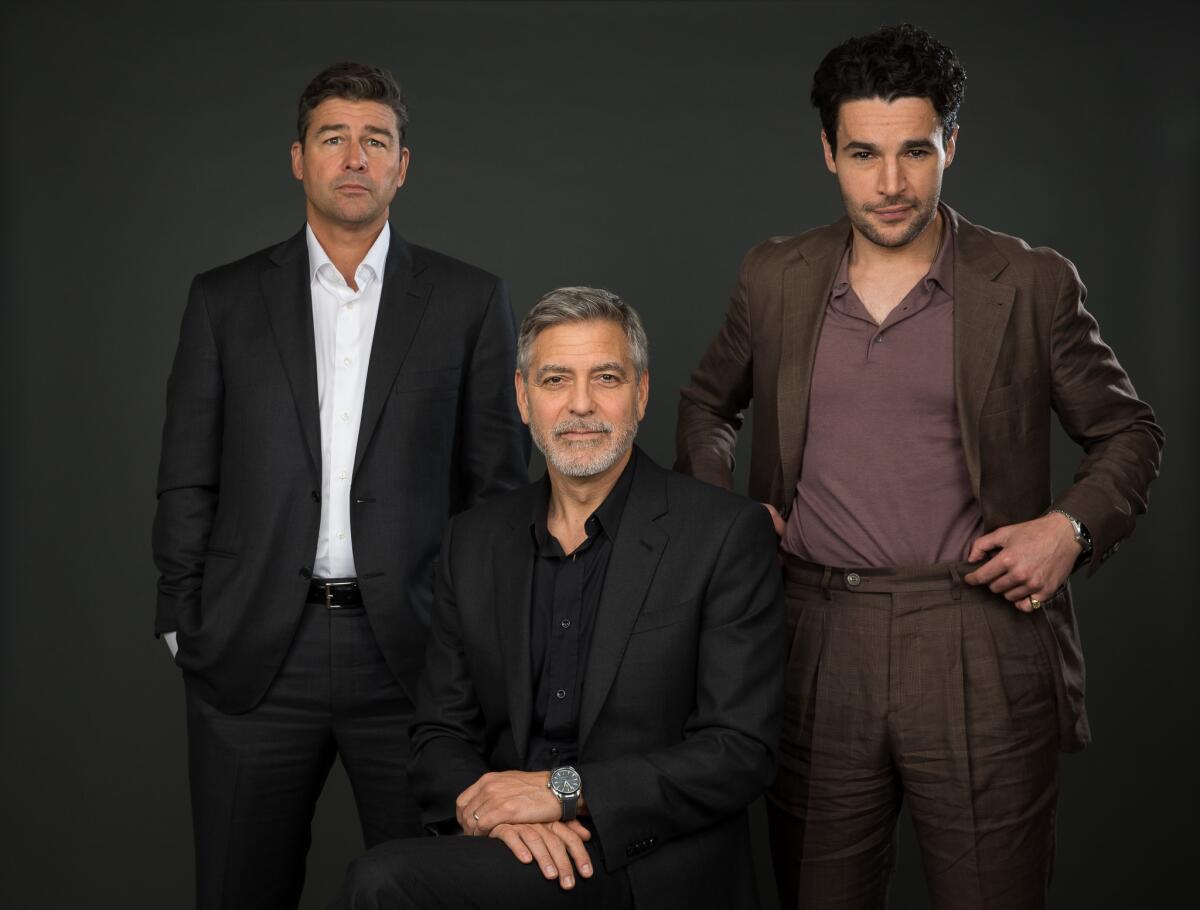
‘Catch-22’ falls flat
Regarding Meredith Blake’s article on the making of the Hulu series “Catch-22,” “How Absurd” [May 19]: The novel by Joseph Heller is one of America’s greatest modern comic novels. And possibly one of the greatest antiwar novels ever written. Its madcap humor and biting satire dissect and elucidate the horrors of war.
When Hulu first announced it would be adapting the Heller masterpiece I was thrilled. But after watching it on Hulu last Friday I have one huge question. What happened to the humor?
The whole point of the book is that war is tragically absurd. Man’s final joke against his fellow man. I know in these PC times filmmakers may be wary to tread into satire and broad humor when dealing with the subject of war, but to strip out the brilliant humor of Heller’s novel for fear of disrespecting the victims of war is doing a disservice to the original material and literature itself.
My father was an AF pilot stationed in England during WWII. The book never blemishes my respect for his service.
In the article, George Clooney states that he originally turned down the job. He was right the first time.
Please take the time to read Heller’s brilliantly subversive book. Written by a man, by the way, who “actually” fought in the war and knew the horrors first hand.
Greg Clausen
Northridge
‘Game’ over, but not the talk
Lorraine Ali may presume too much when she says Sam Tarly’s words were “describing democracy hundreds of years too soon” [“Shades of 2020 as ‘Game’ Ends,” May 22].
I’d say “Game of Thrones” takes place not in the past but in the distant future, when Starbucks cups and plastic water bottles are rare, ancient artifacts that only royalty can afford.
That gives us a few centuries to destroy our current civilization and create dragons.
Dave Suess
Redondo Beach
::
Regarding “‘Game of Thrones’: The Final Days” [May 15]: Much has been written about the motivation for the burning of King’s Landing in “Game of Thrones.”
Aside from the psychological explanations for Daenerys actions, I must remind you of the Feb 7, 1968 destruction of the South Vietnamese village of Ben Tre by American bombs.
In the Associated Press article, reporter Peter Arnett, quoting an American major, wrote these famous words: “It became necessary to destroy the town in order to save it.”
This was the explanation of the American decision to bomb the village, which had been overrun by the Viet Cong, despite the presence of 35,000 civilians. Today we would say they were human shields, and so said Daenerys in her own assessment. They did not revolt against Cersei and Daenerys did not think of them as so innocent.
Lauraine Effress
Oxnard
Time to salute Chinese workers
Regarding “Divining True West” by Liesl Bradner [May 26]: While the famous photo taken 150 years ago by Andrew Russell captured the historic moment when the East and West halves of the Transcontinental Railroad met at Promontory Summit, Utah, it reflects the bias of its day toward the Chinese railroad workers who made up 90% of the Central Pacific Railroad’s labor force. The photo did not include even one Chinese worker.
According to Gordon H. Chang, professor of history at Stanford University, initially the Central Pacific Railroad’s directors wanted a whites-only workforce, and the railroad’s president, Leland Stanford, also advocated for keeping the Asians out. Only after not enough white men signed up for the backbreaking labor did the railroad begin hiring Chinese men. In time the railroad barons came to consider them superior to the other workers. Stanford himself became a great admirer of the thousands of Chinese migrant workers, telling President Andrew Johnson that the Chinese were indispensable to building the railroad, and the Chinese workers were paid “30% to 50% less than their white counterparts and were given the most dangerous work.”
Just like the black soldiers fighting in the Civil War were often left out of the official account but are now being recognized for their bravery and heroism, it’s time we acknowledged the contributions and sacrifices of the Chinese railroad workers who helped connect the United States and bring it into the modern age.
Dienyih Chen
Redondo Beach
‘Barry’ loses its way this season
My jaw dropped upon reading the recommendation of the second season of HBO’s “Barry” [“Underrated / Overrated,” May 26]. My husband and I enjoyed the first season but found the second so disappointing that we are unlikely to continue with the show. It just didn’t come together despite the terrific cast.
Perhaps because the violence and duplicity surrounding the main character was too much to absorb under the guise of dark humor. We especially hated the episode that featured a “vengeful girl.” It was gross while at the same time boring due to endless physical fighting and a creepy feral child scampering around. I will turn my attention to other shows.
Robin Pittman
Manhattan Beach
‘Aladdin’ and the ‘Thief’
Justin Chang’s review of “Aladdin” [“It Has Its Charms,” May 24] did not mention that this film’s story, characterization, acting and production was not so reminiscent of the animated Disney offering of 1992, as it was by the 1940 classic “Thief of Baghdad” produced by the brilliant Korda brothers.
Will Smith’s blue genie had none of the charm and wit of Paul Robson as the genie; the joyful innocence of Sabu as Abu, the thief, or the chilling menace of Conrad Veidt as Jafar, a character originally invented by name for the 1940 film. The review, and the Disney production, owe at least a word of praise for the old thieves who charmed us in the Korda film and for the original classic starring Douglas Fairbanks in 1924.
Sheldon Willens
Los Angeles
‘Echo’ location
The L.A. Times is the paper of record for Angelenos. You lost a brilliant opportunity to highlight a fine documentary about one of our greatest creative musical times, the era that launched the California Sound and the people who gave our city this cultural gift. By not putting the review of “Echo in the Canyon” [“Jingle Jangle Days Echo in ‘Canyon’,” May 24] on the front of the Calendar section you lost a great opportunity to showcase a fine film and a very important era for those of us who loved music and lived it. Both Andrew Slater and Jakob Dylan deserve better, as they too are part of the musical zeitgeist of Los Angeles along with the originators of the music that indeed “echoed from Laurel Canyon” and reverberated all over the world. Please, next time have more respect (and better placement) for Los Angeles, its music, creators and musicians.
Jeff Ayeroff
Pacific Palisades
More to Read
The biggest entertainment stories
Get our big stories about Hollywood, film, television, music, arts, culture and more right in your inbox as soon as they publish.
You may occasionally receive promotional content from the Los Angeles Times.
